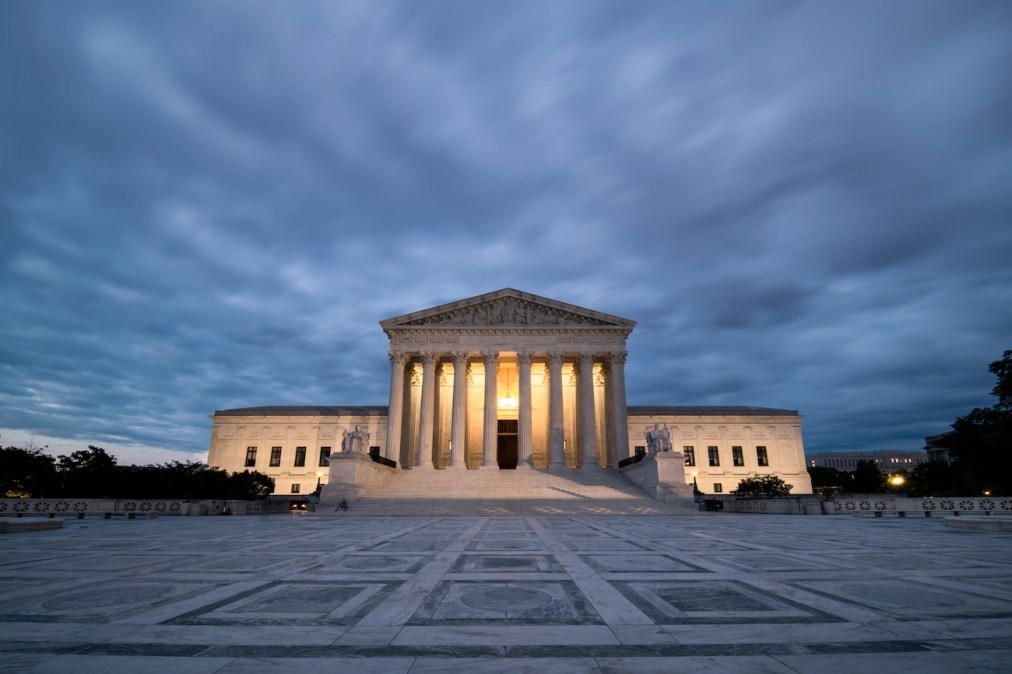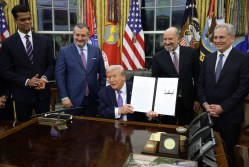Supreme Court protects FCC school and library internet subsidies in new ruling

The Supreme Court Friday ruled in a 6-3 decision to protect the Federal Communications Commission’s Universal Service Fund, which subsidizes phone and internet services in rural areas and schools through a number of programs, including the E-Rate program.
The Supreme Court found that the FCC did not exceed its authority when it established the USF in 1996 to subsidize “universal” service. The fund collects billions in fees from telecommunications services and users each year to fund rural broadband networks, internet for health care centers, cybersecurity programs, internet subsidies for low-income households and internet discounts for schools and libraries through E-Rate. The E-Rate program distributes up to nearly $4.5 billion in funds each year to more than 106,000 schools and 12,500 libraries, benefitting 54 million students according to an estimate from the Schools, Health and Libraries Broadband Coalition.
The challenge to the program stems from debates following a lower court ruling last summer, which found the Universal Service Fund to be unconstitutional. The court found the FCC exceeded its authority to collect fees and advised authority be left to elected officials.
“When Congress amended the Communications Act in 1996, it provided the Commission with clear guidance on how to promote universal service using carrier contributions. Congress laid out the ‘general policy’ to be achieved, the ‘principle[s]’ and standards the FCC must use in pursuing that policy, and the ‘boundaries’ the FCC may not cross,” Justice Elena Kagan wrote in her majority opinion. “For nearly three decades, the work of Congress and the Commission in establishing universal-service programs has led to a more fully connected country. And it has done so while leaving fully intact the separation of powers integral to our Constitution.”
The Supreme Court also found that the FCC may continue delegating its administering authority over the USF to the Universal Service Administrative Company, a private corporation tasked with managing the fund’s revenue and distribution.
The USF and its E-Rate program have been at the center of several recent debates regarding the legality of certain expenditures. In January, Sen. Ted Cruz, R-Tex., introduced a resolution that would reverse a rule change the FCC made last year that allows schools and libraries to spend E-Rate funds on wireless hotspots. Schools and libraries last March asked the Senate to protect the rule change.
Revati Prasad, executive director of the Benton Institute for Broadband and Society, praised the court’s decision. The organization was one of many that petitioned to bring the case to the Supreme Court.
“Today is a great day,” Prasad wrote. “We will need some time to sort through the details of today’s decision, but what matters most is that the Supreme Court has given the green light to the FCC to continue to support internet access to the tens of millions of Americans and the thousands of schools, libraries and rural hospitals that rely on the Universal Service Fund.”
Alejandra Montoya-Boyer, senior director of the Leadership Conference’s Center for Civil Rights and Technology, also praised the decision, but added the Congress needs to do more to help ensure access to affordable internet.
“Even with this promising ruling, the future of the USF and the fight for digital equity wasn’t sealed today,” Montoya-Boyer said in a statement. “Congress must ensure that funding for USF and its programs are predictable, sustainable, and long-term. The USF could also serve as a permanent home and funding source to revive the Affordable Connectivity Program. We’re committed to working with congressional champions to ensure everyone has equal access to the internet and the essentials it keeps us connected to.”






